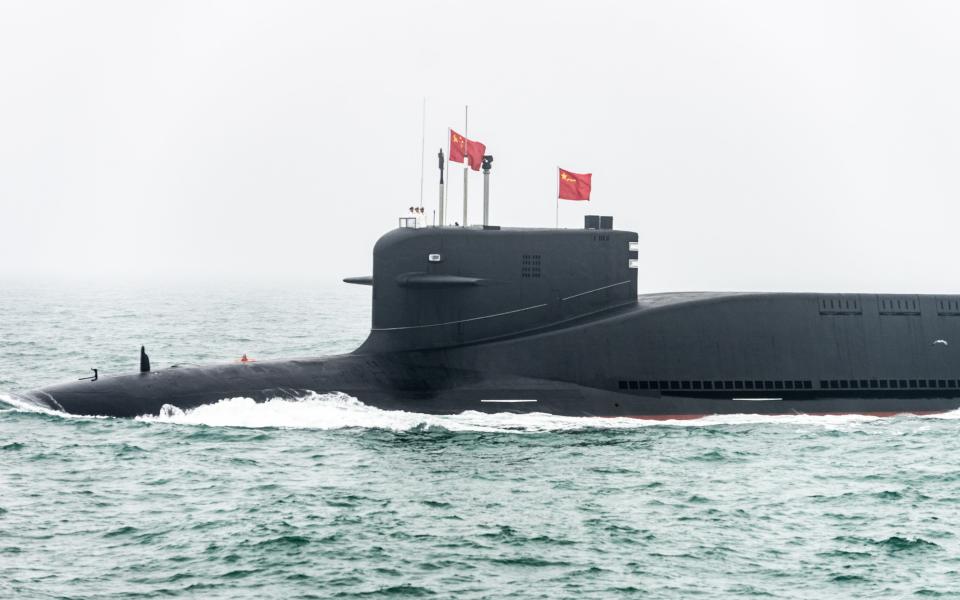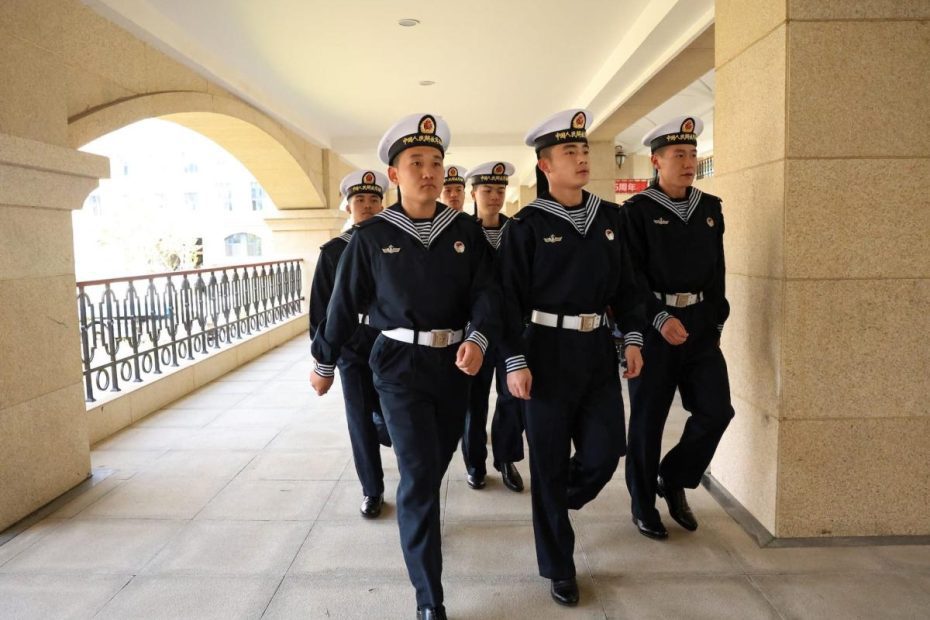-
A new report offers a rare glimpse into conditions inside China's growing submarine fleet.
-
It was found that the crew was affected by excessive noise, poor lighting and poor air quality.
-
The question is whether these problems undermine the effectiveness of China's submarines.
Chinese sailors have an ironic name for their duties aboard submarines: the “Dragon Palace.” But there’s nothing wonderful — or even healthy — about conditions aboard China’s vast submarine fleet, a new report has found.
Chinese “submarine crews have long jokingly referred to their boats as the 'dragon palace,' referring to the palace of the dragon king on the bottom of the Eastern Sea in Chinese mythology,” according to a new report from the China Maritime Studies Institute of the U.S. Naval War College.
In Chinese mythology, Ao Guang is the king of all sea dragons, who rules them from his underwater crystal palace. But life aboard submarines operated by the People's Liberation Army Navy (PLAN) is far from regal, according to the CMSI report, which offers a rare glimpse into life aboard submarines clouded by the secrecy of the Chinese military and the regime's widespread censorship and intimidation. The report found that crews suffer from excessive noise, poor lighting and poor air quality. The canned food often served is so bland that some sailors develop eating disorders.
“Working aboard PLAN submarines can cost personnel their health,” the CMSI report said. For example, several studies over the past two decades have found numerous ailments, including canker sores and back pain. “In 2018, researchers from several PLAN institutes and hospitals conducting studies at a submarine base found that submariners were prone to lower back pain as a profession due to confined work spaces, long hours in fixed or contorted positions, and the constant vibrations they are exposed to. Results showed a prevalence of lower back pain among officers and petty officers of 33.81%.”
Crews suffer psychological effects from the constant noise and poor air quality they are exposed to while underway. “Crew members working and living in the poor microclimate of a submarine are prone to boredom, fatigue, lethargy and discomfort, which affects their psychological state, cognitive abilities and emotional well-being,” the report said. “These problems are further exacerbated by noxious gases, magnetic fields, noise, vibrations and many other barriers to sleep and comfort.”
Noise levels aboard Chinese vessels have been measured as high as 90 to 130 decibels, exceeding even the Chinese military threshold of 85 to 100 decibels. Submarine crews have also reported vision problems resulting from poor lighting. “Analysis attributed this to poor lighting causing visual strain and cramped spaces causing a problem in the ciliary muscles that regulate changes in the curvature of the eye's lens,” CMSI said. “Crews requested more lighting in compartments and lighting modes that could indicate day or night.”
Meanwhile, long journeys are plagued by a lack of medical care due to poorly trained caregivers and poorly maintained medical equipment, the report found.


That may be why the Chinese submarine force recently switched to traditional Chinese medicine, which is already used by other branches of the Chinese military. “Until recently, there was no traditional Chinese medicine on board PLAN submarines because there were no designated positions to administer it,” CMSI said.
Sailors in most navies grumble about the food. Even U.S. Navy submarines, which reportedly have better food than other ships, grumble about the punishment-quality meals. Keeping up with good food for months on end is a challenge on Chinese submarines, whose crews range from about 60 on a diesel-powered attack boat to about 120 on a ballistic missile submarine.
Although some recent photos suggest an enticing menu, Chinese submarine cuisine still seems lacking. “Because submarines prohibit cooking over open fires, canned food appears to have been the staple of long-range missions for many years,” according to CMSI. After “the poor taste of canned food eventually caused some sailors to become anorexic,” fresh and frozen food was served more frequently. But when “fresh food runs out or electricity is conserved, submarine crews reportedly begin eating standard field rations, such as the Navy's KT-07 nutritional supplements. To compensate for these circumstances, submariners can usually expect a feast to greet them upon their return to shore.”
Ultimately, the question is whether these problems undermine the effectiveness of China's 61 submarines. Although most are conventional rather than nuclear-powered, they could be among Beijing's most effective weapons if China were to invade Taiwan.
“Many of the hallmarks of a professional submarine culture are present on board PLAN submarines, particularly in terms of secrecy, security and expertise,” CMSI concluded. “Whether it is equipment maintenance procedures or the safety of nuclear reactors, the force appears to demonstrate a high level of professionalism and a desire to maintain the highest standards across the fleet.”
Chinese submarines have their own “dragon palace culture,” which includes activities such as arm wrestling and ping-pong matches, as well as other morale boosters such as onboard newsletters and poetry readings.
And what submarine force would be complete without its special rituals (which often baffle landlubbers). For example, a ceremony to honor those making their first long-duration deployment takes place when the submarine reaches its maximum diving depth, the report said. “Certified personnel will kiss a buttered hammer and drink seawater drawn from the depths, which is preserved in a bottle.”
Michael Peck is a defense writer whose work has appeared in Forbes, Defense News, Foreign Policy magazine and other publications. He holds an MA in political science from Rutgers Univ. Follow him on Twitter And LinkedIn.
Read the original article on Business Insider

